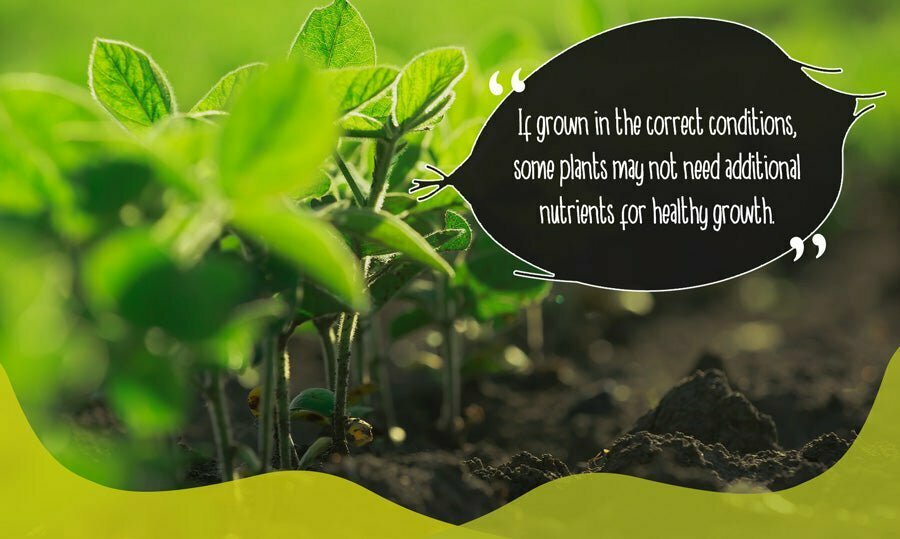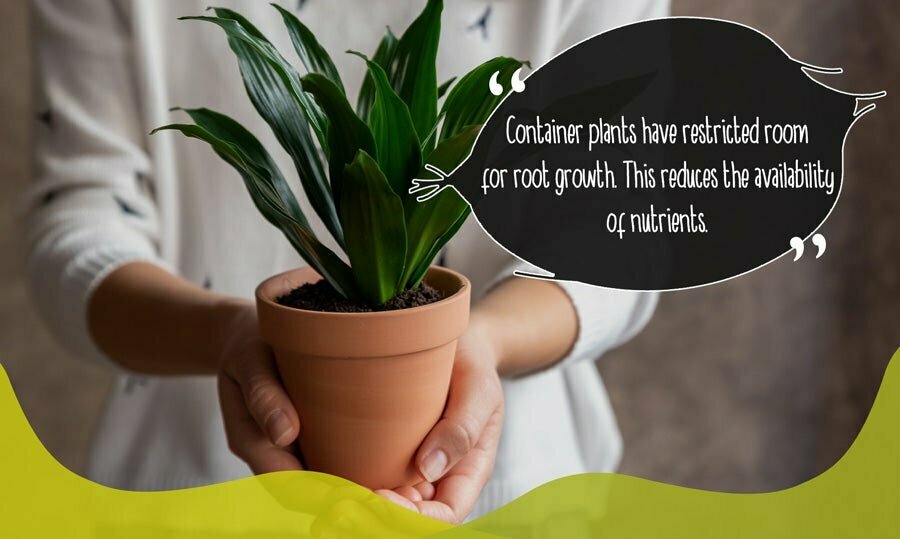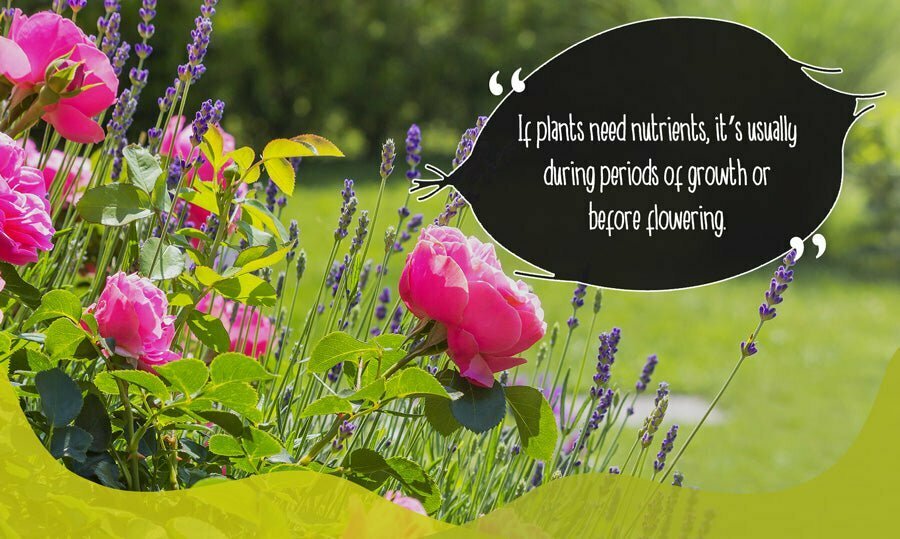How often should I give my plants nutrients?
If grown in the correct conditions, and in well cultivated soil, some plants may not need additional nutrients for healthy growth.
A lack of nutrients in otherwise healthy plants may show as:
- red, yellow, or discoloured leaves
- poor growth
- poor flowering
Sometimes plants will seem generally healthy, except for the fact that they are stunted. This shows conditions are right, but nutrients are lacking.
Soil cultivation
Healthy soil is well drained, aerated, and hosts organic matter and microbes.
If soil is too dry, acidic, or alkaline, it can inhibit the uptake of some nutrients. Adding fertiliser to dry soil can even scorch roots and stems.

Different growth mediums
The amount and type of nutrients needed, as well as the frequency of feeding, will depend on the medium in which a plant is grown.
Ordinary garden soil
Nutrients are usually present in regular soil. The levels and types differ according to soil type, environmental factors, and the presence of organic matter.
Nutrient deficiency in garden plants tends to be caused by:
- poor drainage
- drought
- weather damage
- pests and disease
As existing nutrients aren’t being absorbed, adding more won’t help. These soils will provide better for plants if cultivated.
If ‘hungry’ plants like bedding plants, fruits or vegetables are in balanced soil, but still seem nutrient deficient, fertilising once a month during growing season will be sufficient.
Feeding plants in containers
Plants grown in pots or containers have restricted room for root growth. This reduces the availability of nutrients, regardless of the growing medium.
Adding slow-release fertiliser before planting or using a diluted liquid plant food every one to two weeks during flowering will help. Alternatively using a controlled release NPK fertilised coir compost will ensure the right amount of nutrients are reaching the plants when they need it most, without over-fertilising, which creates additional problems.
When transferring young plants or seedlings, check the chosen potting mix for existing nutrients, to avoid overfeeding or scorching.

Hydroponic growing
As plants grown hydroponically have roots constantly in contact with water and no soil, nutrients must be supplied directly.
This system often means feeding at least daily, sometimes multiple times. The water and plant fertiliser mix requires careful monitoring to ensure plants don’t absorb too much.
Coco coir
Coco coir is naturally sterile and contains no nutrients of its own. As with hydroponic gardening, the gardener has full control over which nutrients are fed at which stage.
Coco peat is more absorbent than ordinary soil, so less plant food is needed. Nutrients are retained for when roots need them. This absorbency makes it important to keep coco coir well hydrated, to avoid scorching roots.
Requirements during different stages of plant growth
In the very earliest phases of growth, necessary nutrients come from the seed itself and frequent watering.
Once a plant grows its first true leaves, it’s ready to photosynthesise and hopefully sustain itself.
If plants need nutrients, it’s usually during periods of growth or before flowering. In the UK, growing season is in spring and summer. Many plants don’t need feeding during winter, even those that are flowering.

Which nutrients are needed?
Compost, mulch, and other organic matter provide lower concentrations of nutrients than synthetic blends. They often improve soil structure, making nutrients more easily available.
Plant fertiliser should come with clear feeding schedules and quantities. Some concentrated fertilisers need to be diluted or added sparingly to avoid damage.
Even when following a feeding schedule, pay attention to overall plant health as overfeeding can still occur.
Some potting mixes contain pre-mixed nitrogen, phosphorous and potassium (NPK) in a ratio designed for healthy growth or flowering. As the three main plant nutrients, they’re often all that’s needed.
Avoid overfeeding plants
Some gardeners overfeed to compensate for a lack of nutrients, without addressing problems in the soil. Research which nutrients each plant needs and find out which types will likely be present in a substrate before feeding.
Overfeeding of one nutrient can prevent the absorption of another. This means overfeeding can make issues difficult to correct.
Even if plants do require extra nutrients, well-maintained soil is still required. The two complement each other to create the conditions for healthy growth.
At Coco & Coir we offer more than just nutrient-boosted coir compost. From coco dots for germinating seedlings to soil-improving coco chips, there’s something to fit the needs of every gardener.
For our complete range of coco coir products, take a look at our online store. More information on how to incorporate coco coir into your gardening routine is also available in our blog archive.










